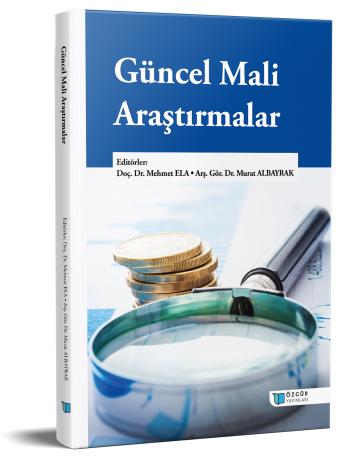
Fiscal Reflections of Economic Cooperation and Energy Policies in the Organization of Turkic States
Chapter from the book:
Ela,
M.
&
Albayrak,
M.
(eds.)
2024.
Current Fiscal Researches.
Synopsis
Following the collapse of the Soviet Union, the independence of the Turkic states in the region paved the way for the realization of the Turan ideal desired since the Hun and Gokturk states. The first steps for this purpose were taken in 1992 with the Summits of the Heads of State of the Turkic Speaking Countries. The integration, whose institutional foundations began to be formed with the Nakhchivan Agreement in 2009, was renamed the Organization of Turkic States (TDT) in 2021. Today, TDT carries out its activities with five full members Azerbaijan, Kazakhstan, Kyrgyzstan, Turkey and Uzbekistan, three observer countries with Turkmenistan, Hungary and the Turkish Republic of Northern Cyprus, and the observer organization of the Economic Cooperation Organization. With the summit meetings held to date, cooperation areas in 30 areas have been identified and work in this area has accelerated. One of the most important of these cooperations is the energy cooperation under the title of economic and sectoral cooperation in the Turkic World 2040 Vision Document. The issue that makes energy cooperation so important is the energy production potential of the TDT countries. The income portion of the public budgets of countries such as Azerbaijan, Turkmenistan and Kazakhstan is generally provided by revenues obtained from natural resources such as oil, natural gas and minerals. In addition, due to its strategic location, Turkey's position at the connection point between TDT countries and Europe is a separate power potential. On the other hand, Turkey being a serious energy importing country will be an advantage in terms of strengthening energy supply security and easing the burden of energy imports on the public budget with the cooperation it will develop with TDT countries. Successful energy cooperation will help to realize a win-win policy among TDT countries. In this direction, the study first examines the establishment process of TDT from a historical perspective. Then, it shows the steps taken within the framework of economic cooperation and exhibits the macroeconomic indicators of TDT countries by using data sets. Finally, it reveals the potential of TDT countries in the energy sector and reveals what the mutual gains are. As a result of the study, it has been determined that determining the energy sector as a priority area will make a significant contribution to the development of TDT.

